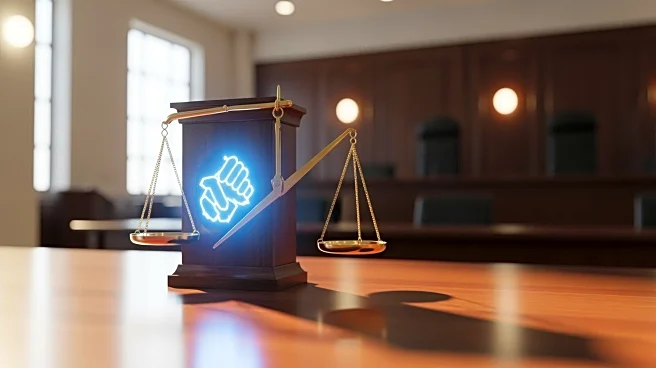What's Happening?
Two U.S. federal judges, Henry Wingate and Julien Xavier Neals, have admitted that artificial intelligence (AI) was used in preparing recent court orders, which were later found to contain errors. This admission came in response to an inquiry by U.S. Senate
Judiciary Committee Chairman Chuck Grassley. The judges revealed that AI tools like OpenAI's ChatGPT and Perplexity were used by their staff without proper authorization or disclosure, leading to the issuance of error-ridden decisions. Judge Neals noted that a draft decision in a securities lawsuit was mistakenly released due to human error and was subsequently withdrawn. Similarly, Judge Wingate mentioned that a draft decision in a civil rights lawsuit was posted due to a lapse in oversight. Both judges have since implemented measures to enhance their review processes and established written AI policies to prevent future occurrences.
Why It's Important?
The use of AI in legal proceedings raises significant concerns about the accuracy and reliability of court decisions. The errors identified in these cases highlight the potential risks of relying on AI without adequate oversight. This situation underscores the need for the judiciary to establish robust guidelines to ensure that AI does not compromise litigants' rights or the fairness of legal proceedings. The acknowledgment of these errors by the judges and the call for stronger AI guidelines by Chairman Grassley reflect a growing awareness of the challenges posed by AI in the legal system. As AI becomes more integrated into various sectors, including law, it is crucial to address these challenges to maintain the integrity of judicial processes.
What's Next?
In response to these incidents, there may be increased scrutiny and regulation of AI use in the judiciary. The judiciary might develop comprehensive guidelines to govern the use of AI in legal proceedings, ensuring that all AI-generated content is thoroughly vetted before being used in court decisions. This could involve training for legal staff on the appropriate use of AI tools and the establishment of protocols for AI-assisted research and drafting. Additionally, there may be broader discussions within the legal community about the ethical implications of AI in law and the need for ongoing oversight to prevent similar issues in the future.















